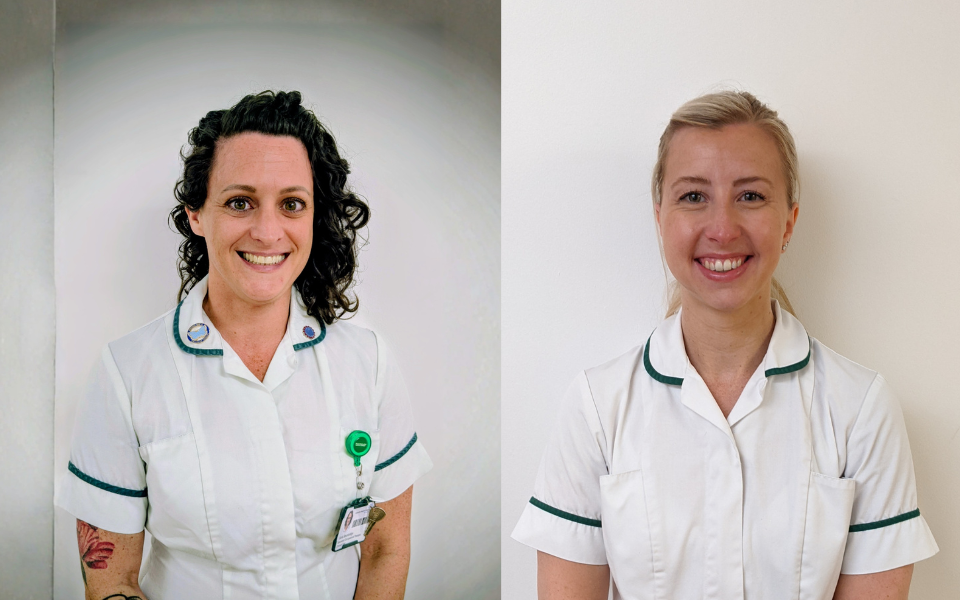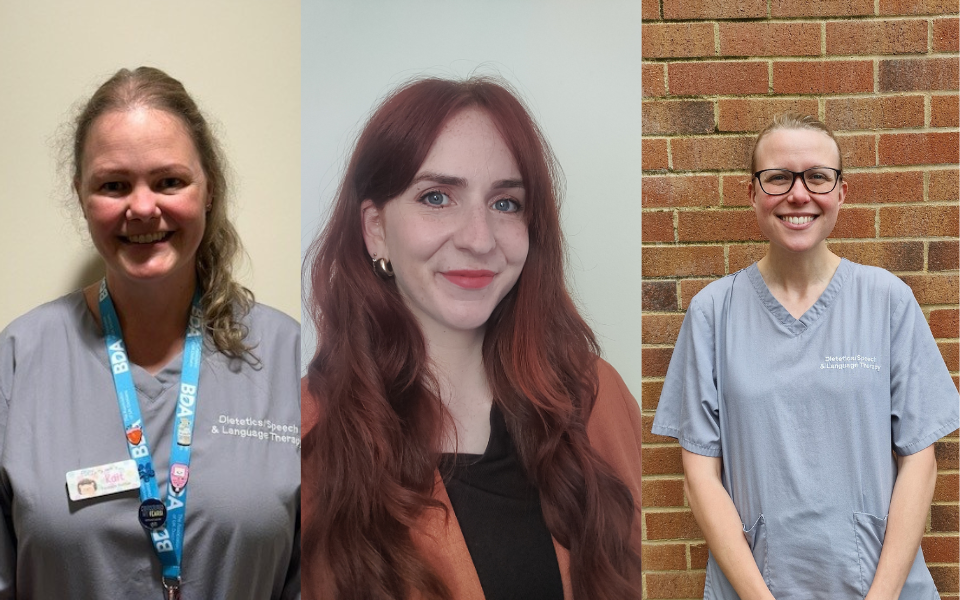
Allied health
Fueling Better Health: A Look Inside Dietetics at UHS
At University Hospital Southampton (UHS), dietitians are a key part of our Allied Health Professions (AHP) workforce, playing a vital role in patient care across inpatient, outpatient, and community settings. Dietitians combine scientific knowledge, clinical expertise, and a person-centred approach to support patients through nutrition at every stage of life.
From paediatrics to specialist gastroenterology services, their work impacts people living with long-term conditions, recovering from illness, or navigating complex dietary needs. To shine a light on this diverse and rewarding profession, we spoke with three dietitians working in different areas of the Trust about their inspiration to pursue dietetics, day-to-day experiences, and the opportunities available within the field.
What inspired you to become a dietitian, and how did your journey begin?
Kaitlin Fitzgerald, Advanced Dietitian: I went to school and university in South Africa and at age 14, you choose your final year subjects based on the degree you want to do and the University you wish to attend. My mum suggested being a dietitian and working with children with type 1 diabetes. I qualified and worked in different specialities in South Africa, then moved to the UK, and have worked here as a dietitian since.
Laura Malone, Team Lead Dietitian: I’ve always had a strong interest in food, and my favourite subject at school was Home Economics. One afternoon, a conversation with my teacher inspired me to pursue Dietetics at university. I thoroughly enjoyed my course and expanded my knowledge in areas like health promotion, food science, and the psychology of health. The combination of working with people, promoting healthier lifestyles, and my love for food made becoming a dietitian the ideal path for me.
Rosie Foulkes, Specialist Gastroenterology Dietitian: When I was younger, I wanted to be an artist/designer, but after getting a degree and pursuing a creative career, I realised it wasn’t for me. At age 25, I became interested in nutrition and told my partner, ‘I just wish there was a job in the hospital going around telling people what to eat’. His response was, well, there is! I had never heard of a dietitian before, but it was a real lightbulb moment for me. I quit my job, within a month I was at college, and the rest is history.
What does a typical day look like in your role as a dietitian?
Kaitlin Fitzgerald, Advanced Dietitian: A typical day looks like meetings and huddles, ward reviews or clinic and ad hoc reviews and queries in between. I spend a lot of time looking at growth charts of term and preterm babies and young adults and devising different feed plans and dietary advice for each.
Laura Malone, Team Lead Dietitian: My mornings typically involve running an outpatient clinic at a local GP surgery, seeing a range of patients, including those with weight concerns, eating disorders, or IBS. I triage referrals and respond to queries from GPs and allied health professionals such as mental health nurses. In the afternoons, I complete clinic admin and often deliver training for local doctors. I also run patient groups covering topics like hypertension and weight management. The role is varied and rewarding, with plenty of opportunities to educate and support both patients and professionals.
Rosie Foulkes, Specialist Gastroenterology Dietitian: I work in a team of gastroenterology dietitians. We split up the day-to-day tasks, e.g. replying to emails or patient queries, attending multidisciplinary meetings, etc. Typically I may spend my morning on the wards seeing patients with complex gastro issues (e.g. Inflammatory bowel disease (IBD), gastroparesis, disordered eating) and my afternoon in clinic helping people manage gastro conditions at home (e.g. Irritable bowel syndrome (IBS), functional constipation, Gastro-oesophageal reflux disease (GORD)).
What impact does your role have in improving patient care?
Kaitlin Fitzgerald, Advanced Dietitian: My role focuses on providing nutrition advice for babies, children and young adults, helping them to grow and eat better to feel better. We also focus on encouraging children and young people to play a role in managing their own nutrition- this may be trying a new food, choosing a healthier option, or drinking a high-calorie supplement. We also focus on service development, by managing and monitoring inpatient and outpatient caseloads and growing the service.
Rosie Foulkes, Specialist Gastroenterology Dietitian: Patients with gastro conditions can have severe symptoms (e.g. diarrhoea, bloating, constipation) which impact their quality of life, affecting their relationships, work, and general wellbeing. Some people don’t leave home due to fear of not having a toilet nearby, or others can’t join in with social occasions due to restrictive diets or overwhelming symptoms.
By manipulating their diet (e.g. altering the type or amount of fibre they eat) I can help manage their symptoms so that they gain some control, enabling them to engage in daily activities with less anxiety.
Have you been involved in research, teaching, or leadership roles within dietetics? How did you get started?
Kaitlin Fitzgerald, Advanced Dietitian: I am currently a team lead. I started as a band 6 in a district hospital and worked my way up to a band 7 and have had opportunities within the NHS for mentoring and preceptorship, supervision of students and supervision of band 5 and 6 dietitians. In becoming a band 7, I also earned my Masters degree and have used all that I have learnt from that in my current practice.
Laura Malone, Team Lead Dietitian: I’ve always enjoyed teaching and welcomed students to join me. When a placement lead role became available, I eagerly took it on, managing student timetables and meetings. Soon after, I became the student coordinator for a local university’s dietetics course. This involved overseeing placements and liaising directly with the higher education institute. I’ve found great satisfaction in supporting future dietitians and contributing to their education and development through both leadership and teaching opportunities.
Rosie Foulkes, Specialist Gastroenterology Dietitian: I was privileged to have the opportunity to publish my university dissertation, a service evaluation of the low FODMAP (Fermentable Oligosaccharides, Disaccharides, Monosaccharides, and Polyols) diet in Irritable Bowel Syndrome (IBS). Led by my supervisor, I worked on the manuscript in my own time around my band 5 role, and presented the abstract at the British Dietetic Association (BDA) open day.
It was tiring and stressful at times, and took longer than expected, but it felt amazing to have my research published and used by dietitians across the country
What opportunities have you had to grow or specialise in your dietetic career?
Kaitlin Fitzgerald, Advanced Dietitian: I was offered a maternity leave post in ketogenic diets (placing paediatric patients with uncontrolled epilepsy on very high-fat, very low-carbohydrate diets to help with their seizures), which is now one of my favourite specialities.
I was trained up by an experienced dietetic colleague, and she gave me a really good head-start in this area. I have had the privilege of working with really experienced colleagues who have helped me learn and grow into the dietitian I currently am.
Rosie Foulkes, Specialist Gastroenterology Dietitian: In 2023 I joined UHS as a B6 gastroenterology specialist dietitian, which was my goal since shadowing gastro during my B5 placement. Within my role, I have received many opportunities for shadowing, supervision and CPD, helping me grow within my specialism.
Our team lead encourages engagement in research and champions evidence-based practice, and the team is always eager to discuss new emerging evidence relating to our practice.
What does being part of a multidisciplinary team mean for you as a dietitian?
Kaitlin Fitzgerald, Advanced Dietitian: Being part of a multidisciplinary team means working with experienced colleagues with different perspectives and experiences who work together to put the most optimal plans in place to help paediatric patients and their families.
Rosie Foulkes, Specialist Gastroenterology Dietitian: With many of our gastro patients, diet is one piece in the puzzle. Many patients on our caseload have Crohn’s disease and need several lines of treatment including drugs and surgeries. Being part of an MDT (multidisciplinary team) means everyone provides their expertise in a group-management situation.
If something is out of my scope of practice, I will communicate the issue with the nurses or doctors so that the right professional is providing the correct advice for the patient.
What advice would you give to students or new graduates looking to start a career in dietetics?
Kaitlin Fitzgerald, Advanced Dietitian: I would advise them to ask to shadow acute dietitians in both adults and paediatrics to get an idea of which area they would like to get into once they start studying and once they qualify. Extra reading up and asking questions always help one learn!
Rosie Foulkes, Specialist Gastroenterology Dietitian: Studying dietetics can seem like a long time. For me, I studied for 5 years (1 year college, 4 years undergrad). It can feel like the things at the start are so far removed from dietetics (e.g. biochemistry, psychology, anatomy), but if you look at the big picture, this is the foundational information you need to understand dietetics later.
Enjoy the opportunity to learn about everything, as it will all feed into your practice eventually!
Through these interviews, we’ve seen how dietitians like Kaitlin, Laura, and Rosie are making a real difference, whether it's supporting a child’s growth and development, empowering someone to manage a lifelong condition, or leading education and research within the profession. Their stories highlight not only the diversity of dietetic roles at UHS but also the passion, teamwork, and commitment to continual learning that underpin a career in dietetics.
Whether you're a student considering your options, a graduate exploring specialisms, or someone looking for a meaningful healthcare career, dietetics offers a unique path to combine science, health, and care.
Explore our careers site to discover more about roles in dietetics and other roles within the Allied Health Profession and see where your journey could begin.
Related Blogs
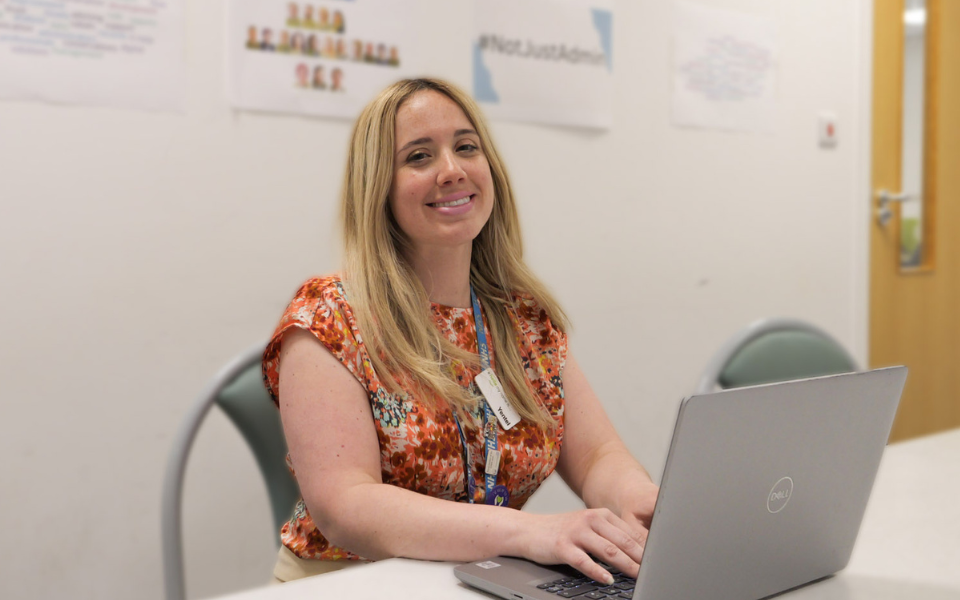
From Sports Coach to NHS Innovator: How Yentel Found Purpose at UHS
More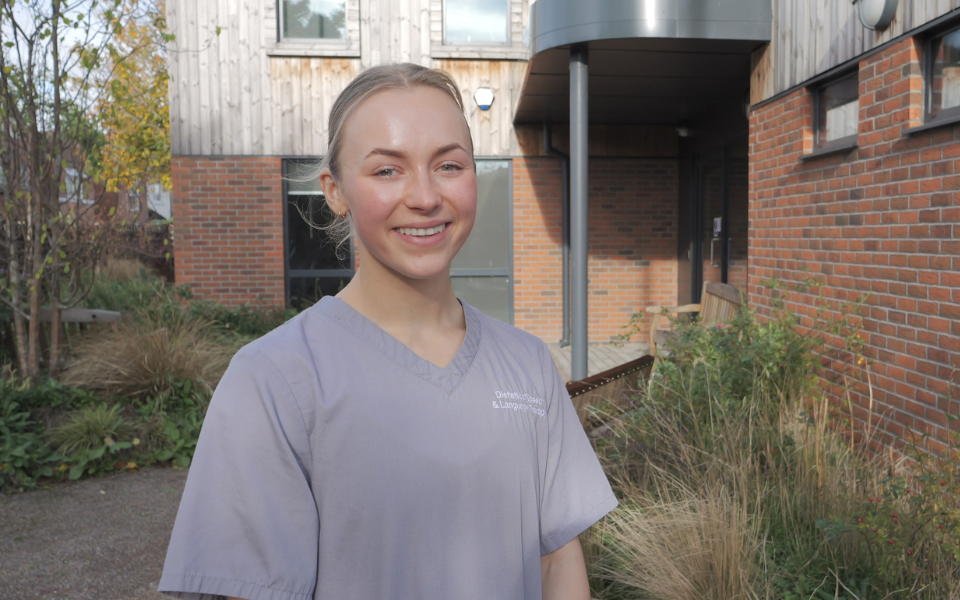
Supporting Newly Qualified Professionals: The Impact of Preceptorship at UHS – Goda’s Story
More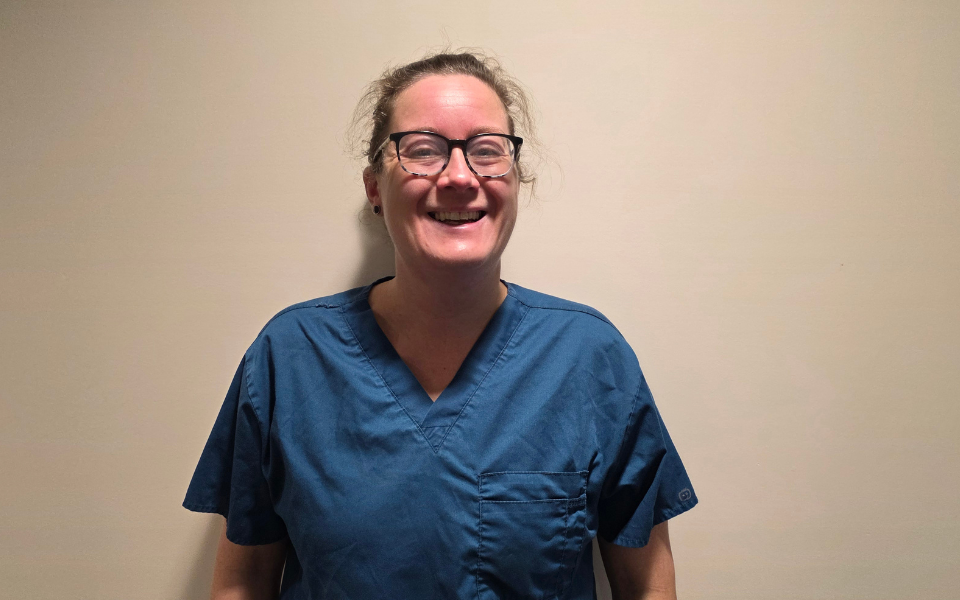
From Childhood Dream to NHS Specialist: Lizzi’s Journey in Pharmacy
More